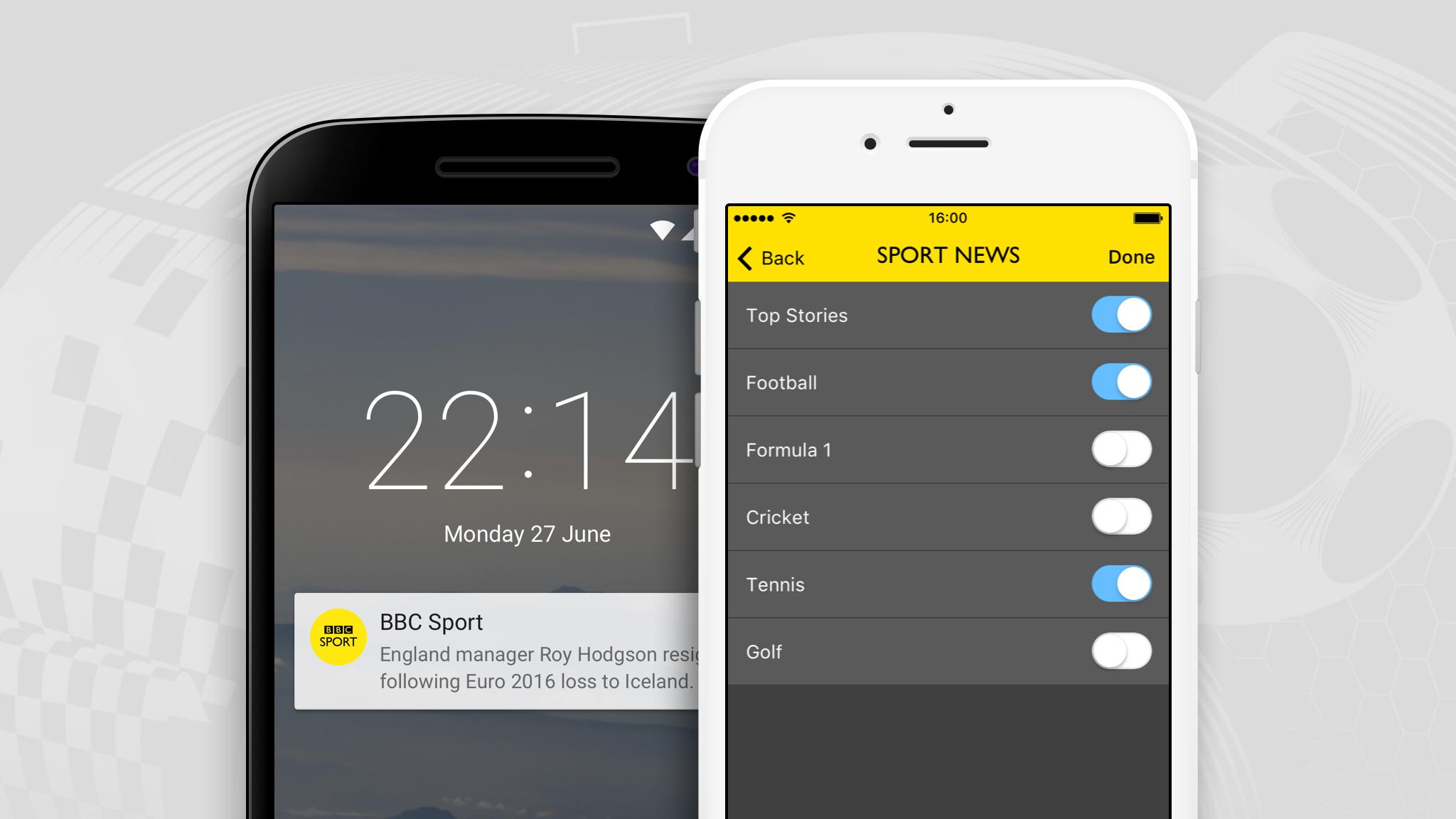Premier League 2016-17: All you need to know about the new season
- Published
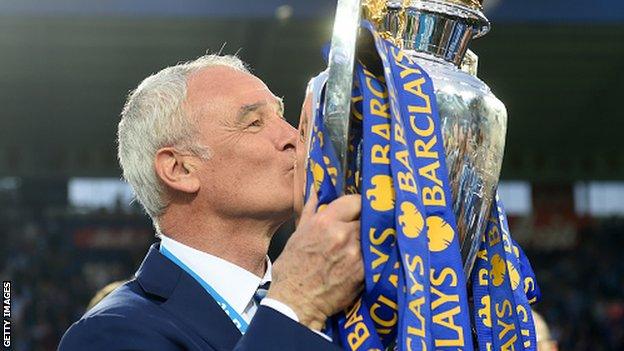
Leicester City manager Claudio Ranieri with the Premier League trophy after his side finished 10 points ahead of runners-up Arsenal in 2015-16
Ninety days after the curtain came down on a season full of surprises and drama, the Premier League is back.
There are new faces in the dugout and on the pitch, new rules to grasp and shows to watch - plus the arrival of the most expensive player in the world.
If you've been busy this summer and taken your eye off the ball, don't worry. By the time you've finished this piece you'll be bang up to speed ahead of the big kick-off.
New faces in the technical area
The Premier League won't be short of egos this season.
Jose Mourinho has taken over at Manchester United and signed former Paris St-Germain striker Zlatan Ibrahimovic and £89m Paul Pogba - while across town former Barcelona and Bayern Munich boss Pep Guardiola is the new man in charge of Manchester City.
The other new managers to keep an eye on are David Moyes at Sunderland, Antonio Conte at Chelsea, Claude Puel at Southampton, Ronald Koeman at Everton and Walter Mazzarri at Watford.
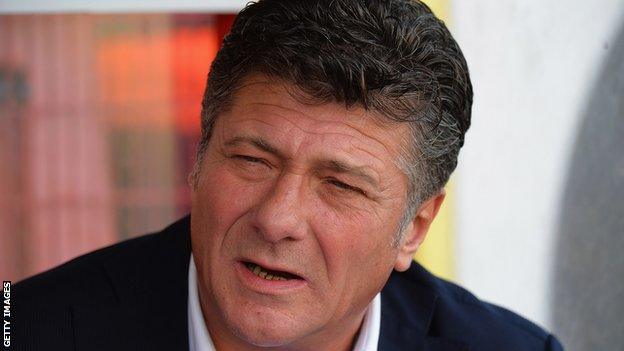
Which Premier League manager is this?
Chop, change, chop, change. Appoint, sack, repeat.
The level of managerial experience in the dugouts lurches from one extreme to another in the Premier League this season.
Eight managers are set to take charge of their sides for the first time in the top flight this weekend - Mourinho, Conte, Guardiola, Aitor Karanka, Ronald Koeman, Puel, Moyes, and Mazzarri.
Untested? Yes - but also unbeaten...
In addition, Hull City will have caretaker Mike Phelan in charge for their first game back in the Premier League.
There were just three new boys on the first day of last season, with six in 2012-13 the most recent until now.
Arsene Wenger's total of 752 Premier League games in charge of Arsenal dwarves the rest of the Premier League, with 12 managers racking up just 236 games between them. That's an average of 19.6 games each.
New - and old - faces on the pitch?
So, Pogba is back at Old Trafford just four years after the 23-year-old midfielder left United for Juventus for £1.5m - that's a cool £87.5m profit for the Italian champions.
Shortly after that deal was announced in the early hours of Tuesday morning, John Stones was named in Manchester City's official Champions League squad, published on the Uefa website before City confirmed that the 22-year-old England international had indeed joined for £47.5m.
Welcome back ... for a higher fee
Ibrahimovic, Switzerland's Granit Xhaka, Belgium's Michy Batshuayi, Germany's Leroy Sane, Armenia's Henrikh Mkhitaryan, Pogba - some big names of European football have arrived in the Premier League this summer.
And we can expect a few more yet.
At the end of July, before Pogba's record arrival and Stones' move to City - and exactly one month before the close of the 2016 summer transfer window - Premier League gross spending stood at £475m according to Deloitte's Sports Business Group.
That was actually slightly down on £515m at the same stage last year.
One significant transfer that you may have missed is the return to these shores of Alex Manninger.
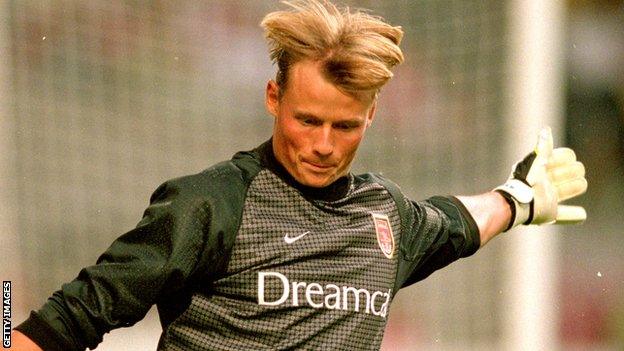
A fresh-faced Alex Manninger in 1999. He has aged considerably better than the games console he is advertising here...
The 39-year-old goalkeeper was signed by Liverpool this summer a huge 14 years after leaving Arsenal.
He made 39 Premier League appearances for the Gunners, winning the double in 1998.
Longest wait between PL appearances | |||
|---|---|---|---|
Player | Date of return | Clubs | Wait |
Damien Delaney | 18 August 2013 | Leicester, Crystal Palace | 11 years 155 days |
Craig Fleming | 14 August 2003 | Norwich (both times) | 10 years 100 days |
Erik Nevland | 3 February 2008 | Manchester United, Fulham | 10 years 15 days |
Paul Rachubka | 22 January 2011 | Manchester United, Blackpool | 9 years 311 days |
Matt Jackson | 27 August 2005 | Everton, Wigan | 9 years 199 days |
Graham Kavanagh | 27 August 2005 | Middlesbrough, Wigan | 9 years 136 days |
If Manninger plays in the league this season - and with fellow new signing Loris Karius injured, he is currently backup to Simon Mignolet - he will set a record for the longest gap between Premier League appearances.
But he would not be the current player with the longest Premier League career. Stoke keeper Shay Given made his Premier League debut for Blackburn against the mighty Wimbledon on 14 December 1996. He last featured on the last day of last season. Still going strong...
Who will win it?
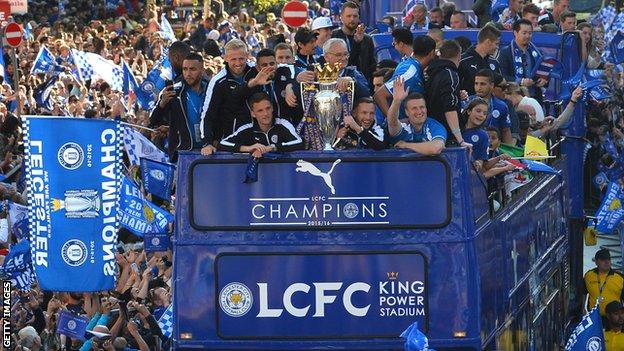
Champions Leicester are currently seventh-favourites with the bookies to retain their title
Yes, it did really happen.
Three months on, it still hasn't sunk in for many that Leicester City really are the defending Premier League champions. Their whole lives were a 5,000-1 shot eh?
But how will they go on this season?
One of their holy trinity of star players - N'Golo Kante - has left but Riyad Mahrez and Jamie Vardy remain and the Foxes have a Champions League campaign to look forward to this year.
And if the history books are anything to go by, then they certainly won't lose their opening game against Hull on Saturday lunchtime.
The defending Premier League champions have never lost their opening game the following season. In fact, the defending champions have won all but four games on the opening weekend.
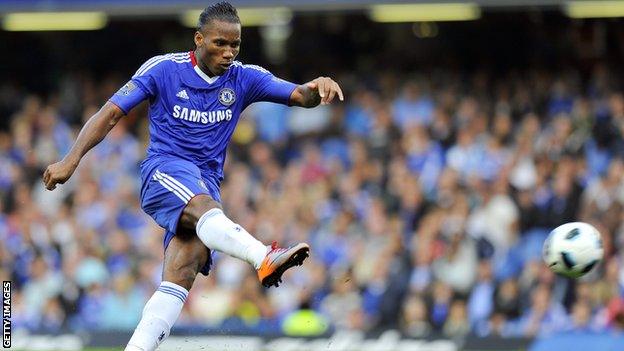
Chelsea recorded the biggest win on the opening weekend by a defending champion when they beat West Brom 6-0 in 2010.
Last season Chelsea drew 2-2 with Swansea - a game that was marked by the fallout between Jose Mourinho and physio Eva Carneiro - and in 2008 Manchester United drew 1-1 with Newcastle.
Sir Alex Ferguson's side were also held by Reading, external 12 months earlier, and after winning their treble in 1999 United drew with Everton., external
Premier League champions: Opening day records | ||||||
|---|---|---|---|---|---|---|
Team | P | W | D | L | F | A |
Manchester United | 13 | 10 | 3 | 0 | 27 | 6 |
Blackburn Rovers | 1 | 1 | 0 | 0 | 1 | 0 |
Arsenal | 3 | 3 | 0 | 0 | 8 | 2 |
Chelsea | 4 | 3 | 1 | 0 | 12 | 2 |
Manchester City | 2 | 2 | 0 | 0 | 5 | 2 |
Guardiola's Manchester City side are favourites at the bookies, while Chelsea - not in Europe this season - could have an advantage.
If Leicester retain their title it would be the seventh time the feat has been achieved, while Chelsea's 10th-placed finish last season is the worst defence.
Friday night lights - so what else is new?
Saturday & Sunday - Premier League. Monday - Premier League. Tuesday & Wednesday - Champions League. Thursday - Europa League.
And now Friday - Premier League
Yes, the set is now complete and there never need be a day of the week without live football again. Live Premier League matches on a Friday night are perhaps the biggest change to the top-flight season this year as a new £5bn TV deal kicks in.
Under the new contract, 168 games will be shown live per season, at an average cost to the broadcasters of £10.2m per match.
The first Friday night game of the season comes on 19 August when Manchester United host Southampton, while Chelsea face Liverpool on 16 September.
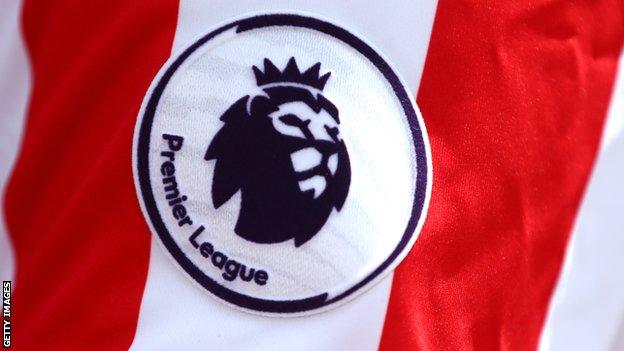
The new Premier League logo. Lion.
The now sponsorless Premier League has a new logo to mark the new season, while there are some rule changes which kicked in on 1 June.
Kick-offs can now be taken backwards, a professional foul in the penalty area is not now necessarily a sending-off and players who feint to kick the ball once they have taken a run-up when taking a penalty will now get booked for unsporting behaviour.
But perhaps the most significant is red cards will be issued to players who confront match officials and use offensive language or make gestures towards them.
Finally, there is a new stadium to enjoy. Or endure.
The Olympic Stadium will be the 55th venue to host a Premier League match and new tenants West Ham will become the 10th Premier League club to play home games at two different stadiums.
The others?
Arsenal, Bolton, Derby, Fulham, Leicester, Manchester City, Middlesbrough, Southampton and Sunderland.
What does £15m get me these days?
In the summer of 1996 Alan Shearer became the world's most expensive footballer when he joined Newcastle from Blackburn for £15m.
Twenty years on and the same fee will barely stretch to a promising youngster. Bournemouth broke their transfer record this summer to spend that on Liverpool winger Jordon Ibe.
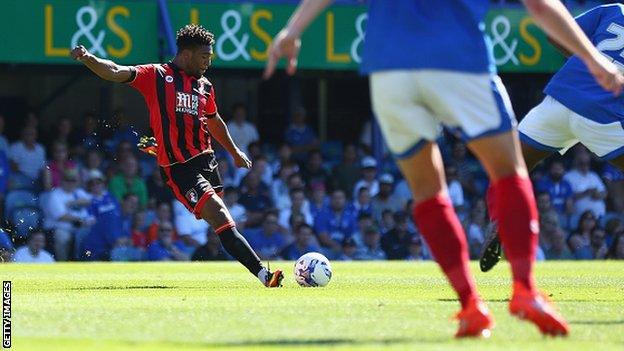
Jordon Ibe signed for Liverpool from Wycombe Wanderers in 2011
Between them, Premier League clubs have signed close to 20 players for fees of £15m or more so far this summer.
Biggest Premier League transfers this summer | ||
|---|---|---|
Paul Pogba | £89m | Juventus to Man Utd |
John Stones | £47.5m | Everton to Man City |
Leroy Sane | £37m | Schalke to Man City |
Granit Xhaka | £35m | Borussia Monchengladbach to Arsenal |
Henrikh Mkhitaryan | £35m | Borussia Dortmund to Man Utd |
Sadio Mane | £34m | Southampton to Liverpool |
But of course there is still value
Of course, you don't need to spend £15m to sign a player who can make a real impact in the Premier League. There have been some impressive signings for less than that this summer.
Stoke paid £13m for Liverpool and Wales midfielder Joe Allen, who you may have heard was in the Euro 2016 team of the tournament. The former Swansea player could excel as a regular starter, he only started eight Premier League games last season.
Wales team-mate Ashley Williams also looks very good value after joining Everton from Swansea for £12m. A drop in the ocean these days.
Nathan Redmond feels like he hasn't reached his true potential yet but Southampton paid £10m to take him from Norwich and, based on their record in the past five years, he will be a £30m player by 2018. Likewise for their £12.8m midfield signing from Bayern Munich, Pierre-Emile Hojbjerg.
But the Saints did lose a player who had 12 months left on his deal for a cut-price fee - midfield enforcer Victor Wanyama joining Tottenham for £11m.
Manchester City paid £13.8m to get regular La Liga scorer Nolito, who notched double figures in Spain's top flight for the past three seasons despite being a winger (14 in 13-14, 13 in 14-15 and 12 in an injury-hit 15-16). Barcelona also wanted to sign the Spain international.
Leicester have paid £7.5m for Euro 2016 star Bartosz Kapustka, a 19-year-old winger, while Everton paid £7m for Idrissa Gana, the Villa midfielder who had better passing stats than N'Golo Kante in the Premier League last season.
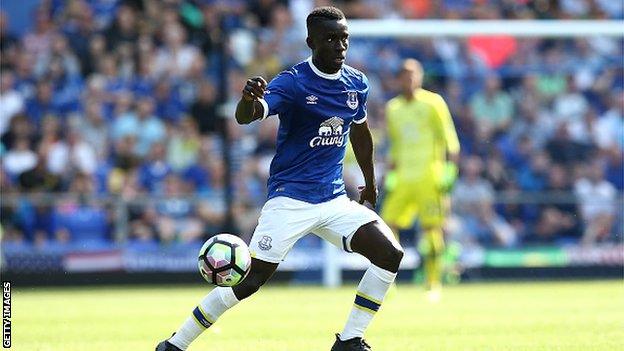
Idrissa Gana had better passing stats than N'Golo Kante in the Premier League last season
Who are the top budget buys?
Even if we look at the cheaper (by Premier League standards) players who cost £2m or less there are some potential stars. Crystal Palace have paid a reported £1.5m to get the four-time French Ligue 1 goalkeeper of the year, Marseille legend Steve Mandanda. At 31, the France international has time to establish himself as one of the Premier League's top keepers.
Stoke have paid up to £5m to get 19-year-old Egyptian winger Ramadan Sobhi, who has already made 71 first-team appearances for Al Ahly. West Ham have got a potential star in Sofiane Feghouli, who they picked up from Valencia. The 26-year-old Algeria winger has had disciplinary problems but on his day can be unplayable.
A real mixed bag of promoted clubs
There has never been a better time to join the Premier League party as the £5.136bn TV deal starts this summer, although there is a clear hierarchy of who is best placed to do well.
Middlesbrough's nine signings have included some big names, including Euro 2012 winners Alvaro Negredo and Victor Valdes. They spent £12m on Atalanta midfielder Marten de Roon, while attacking duo Viktor Fischer and Gaston Ramirez have also come in.
Burnley have brought in a handful of players - youngsters, loanees and Football League players - and Hull, well, where to start? In the week leading up to the Premier League opener, they had no manager and 13 fit players. The squad is weaker than it was last season, with star midfielder Mo Diame heading to Newcastle and nobody of note coming in.
But how do promoted teams do generally?
Of the 71 promoted teams to play in the Premier League, 44% of them - 31 - have been immediately relegated. Or to give it a more positive spin, more than half of them stay up. The average finishing position is 15th.
None of Boro, Burnley or Hull can realistically hope to be the most successful promoted Premier League team - Newcastle (1993-94) and Nottingham Forest (1994-95), finished third.
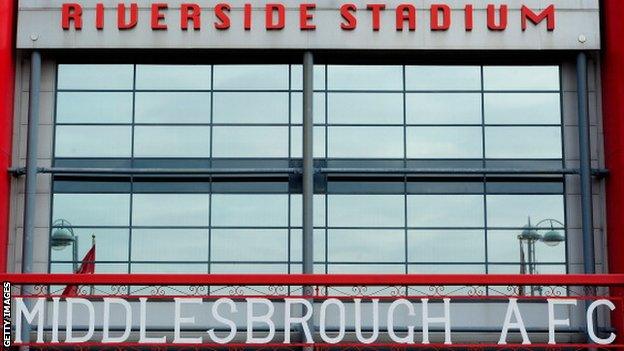
Middlesbrough are back in the Premier League for the first time since 2009
Only twice have all three stayed up - 2001-02 and 2011-12 - and only once have they all gone down - 1997-98.
In recent years there has been an upturn in fortune for top-flight newbies and returnees. Since 2008-09, there has been only one season in which two of the three promoted clubs have gone straight back down (2014-15). In the five seasons prior to that, it happened four times (2003-04, 2004-05, 2006-07 and 2007-08).
How to follow the action on the BBC
Last season, Match of the Day host Gary Lineker promised to present the first show of the 2016-17 season in his pants if Leicester City won the title. Will the former England and Leicester striker be true to his word?
Tune in for the first show of the new season at 22:30 BST this Saturday on BBC One to find out.
Gary Lineker: "I did the tweet knowing there was zero chance of Leicester winning the league"
But that is far from the only thing to look out for this season - with football covered 24/7 on TV, radio and digital platforms.
The Premier League Show is the BBC's new midweek magazine programme -and will feature in-depth interviews with Premier League players. Gabby Logan will present the BBC Two show, which will call the National Football Museum in Manchester its home, while Gary Lineker will front a regular slot looking at some of the big current talking points.
The first show is on 25 August and will feature former Arsenal and England striker Ian Wright while Lineker meets Liverpool' manager Jurgen Klopp.
And don't forget this season's FA Cup will once again be shown on the BBC, with 16 live matches and highlights of every round.
BBC Radio 5 live will have commentaries of 144 Premier League games - starting with Hull against Leicester on Saturday at 12:30 BST - while Jermaine Jenas will present The Friday Football Social, previewing all the weekend's action.
And the BBC Sport digital offer will be bigger than ever, with an improved predictor game, the new team selector, alerts and a more personalised service in addition to the staple diet of news, live coverage and analysis,
Do you know the score when it comes to football? Play the Premier League Predictor this season and challenge your friends by joining or creating leagues.
- Published12 August 2016
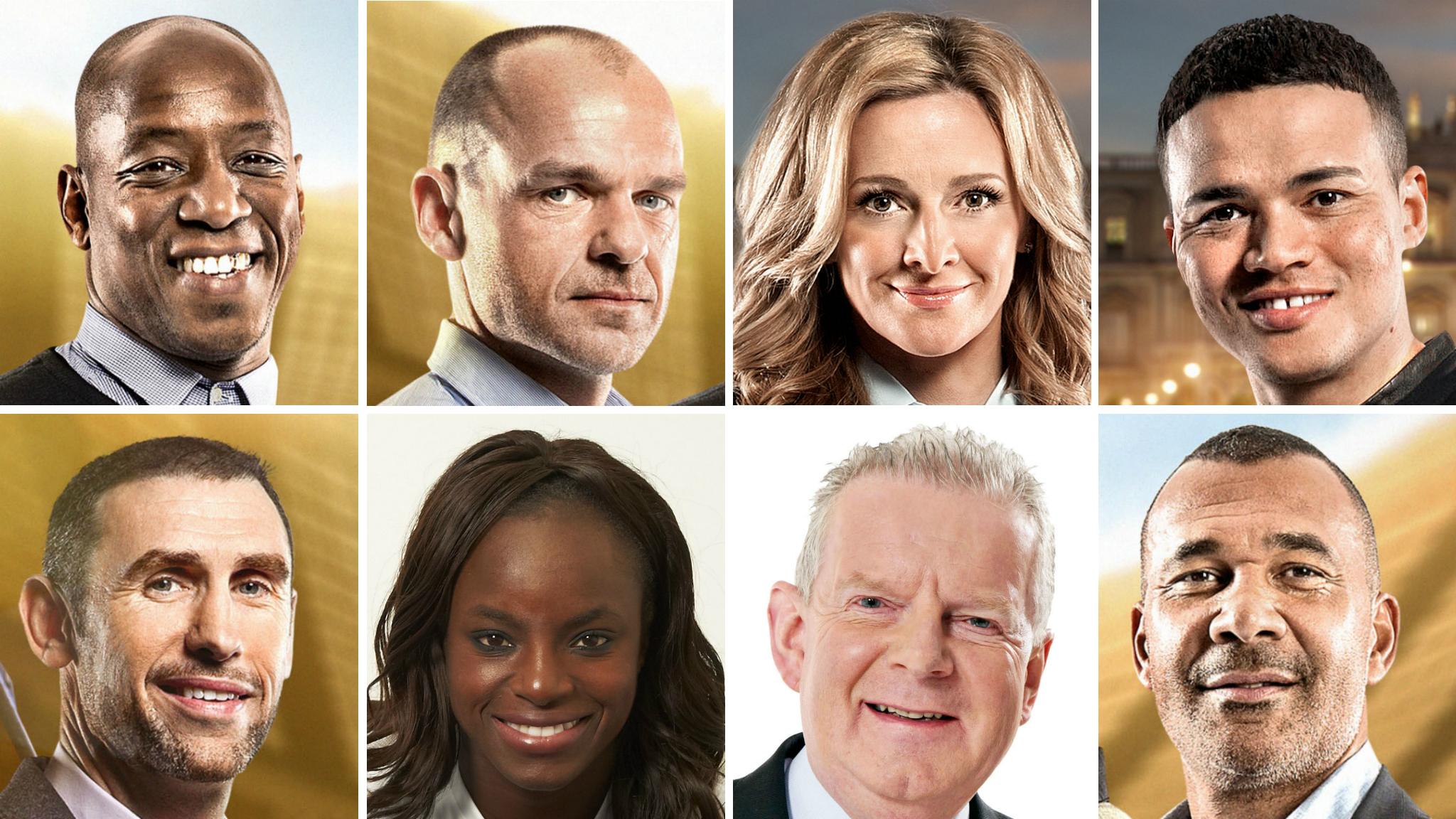
- Published10 August 2016
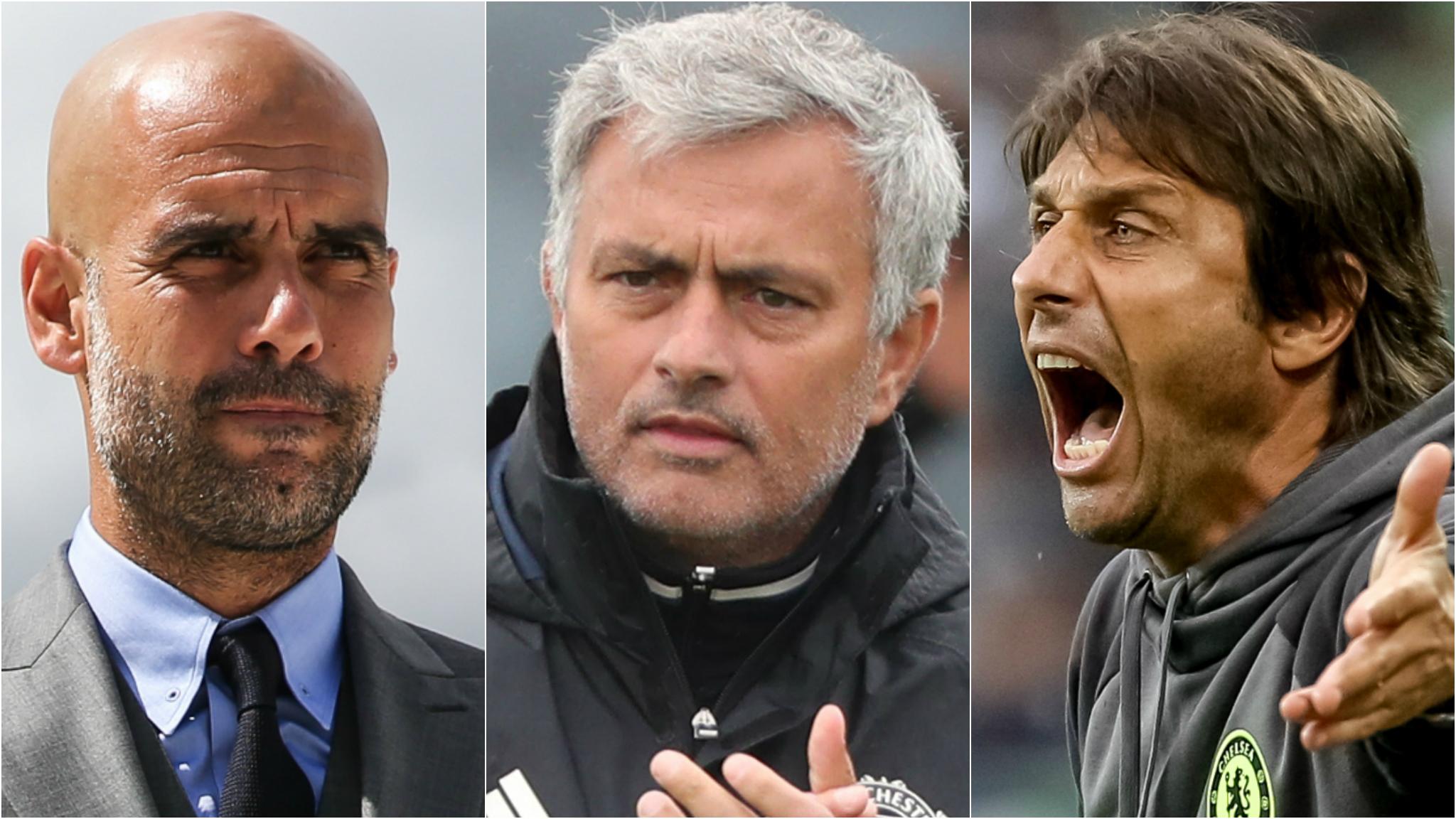
- Published9 August 2016

- Published3 September 2016
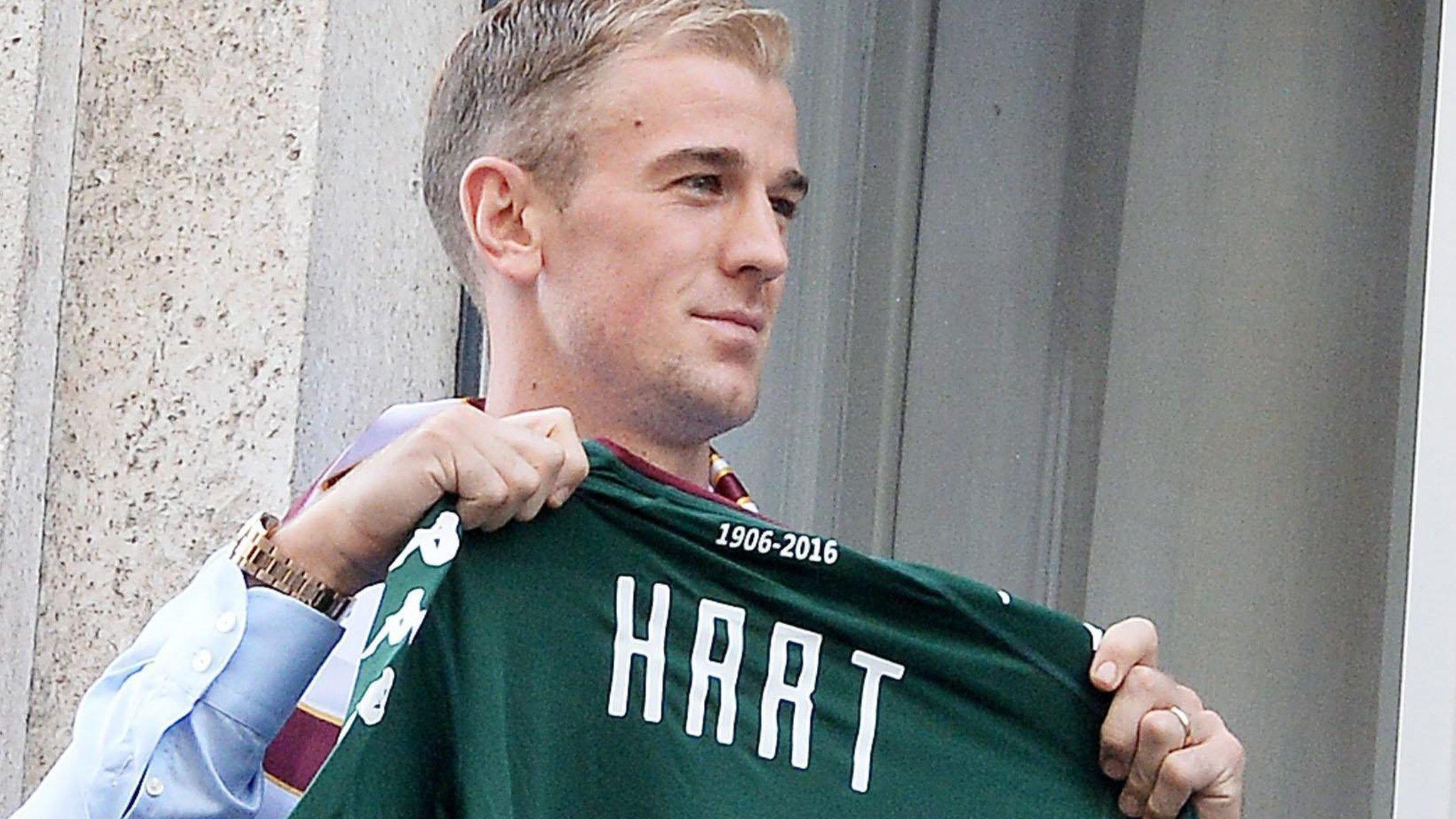
- Published9 August 2016
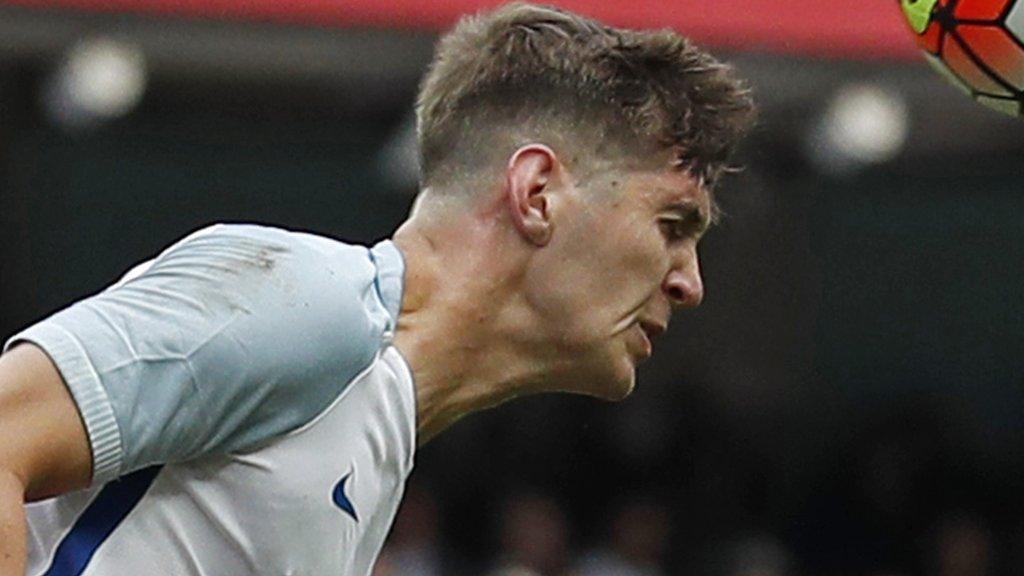
- Attribution
- Published9 August 2016
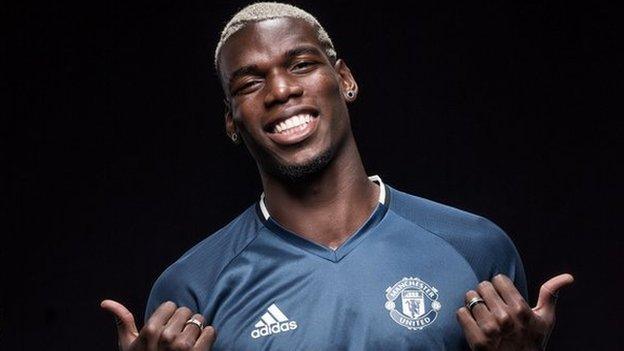
- Published7 August 2016
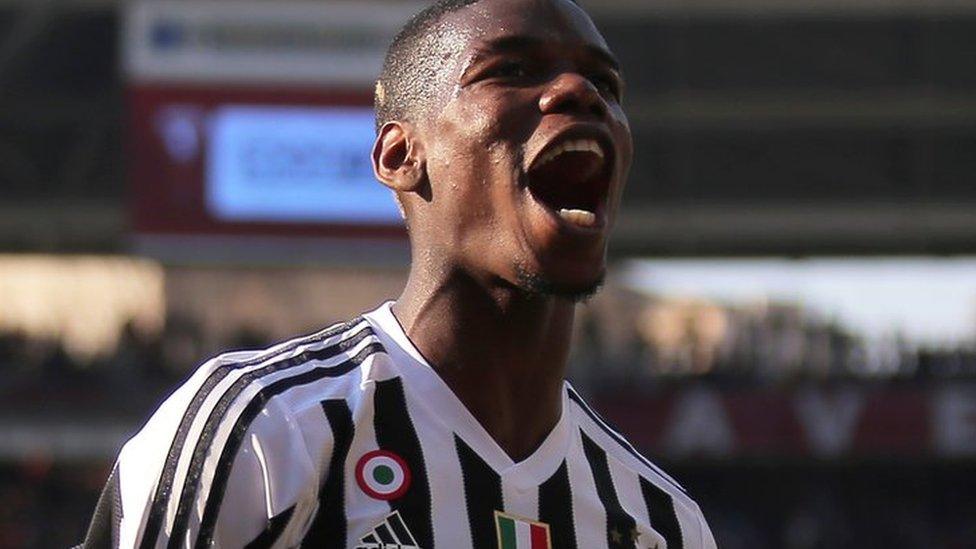
- Published8 August 2017
